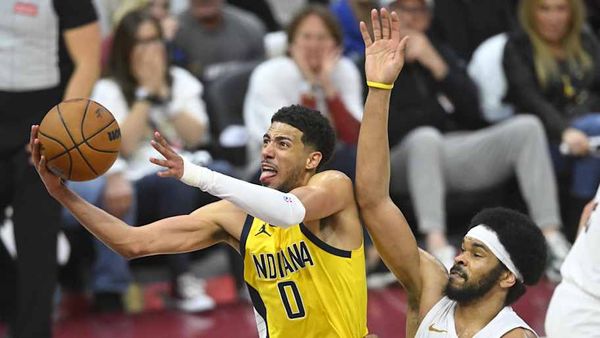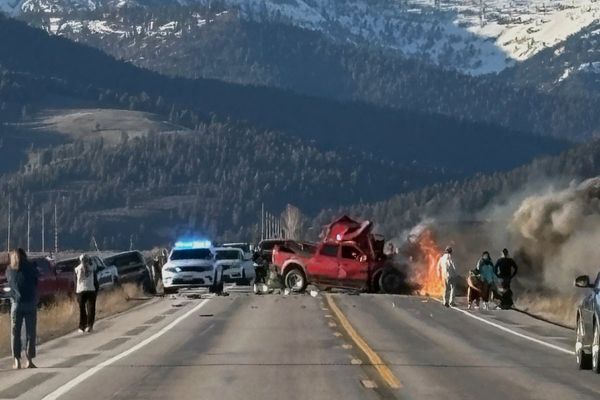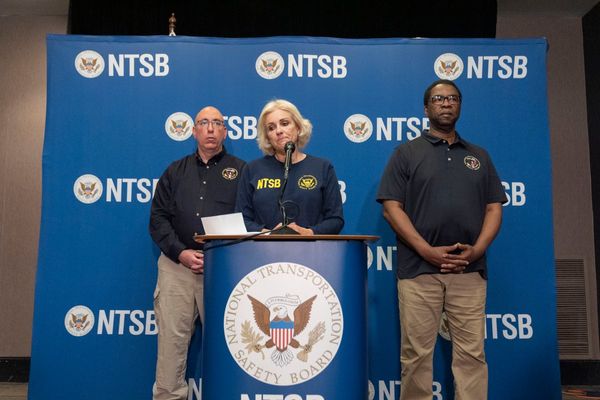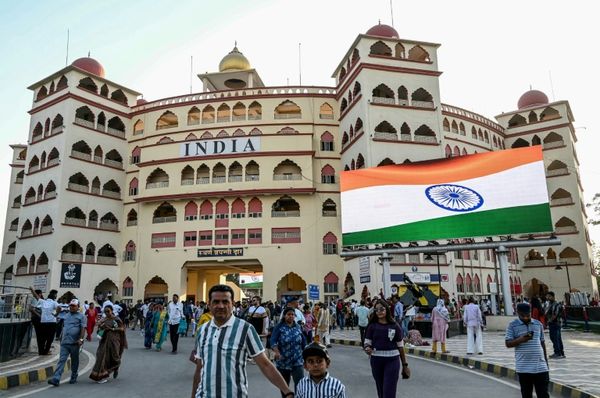In the months before Aruká Juma died this year from COVID-19, the last remaining male of the elusive warrior people that lives in Brazil's Amazon was passing on the tribe's traditions to one of his daughters, who was anointed chief a few years ago.
Juma was the only fluent speaker of his people's language and held the tribe's ancestral memory in his head. But the pandemic cut short Juma's plans to tell his children and grandchildren about their culture, music, traditional medicine and spiritual practices. Had the vaccine reached the elder sooner, perhaps more of the Juma people’s history would have been saved.
Indigenous peoples in Brazil are being vaccinated at a much slower pace than all other priority groups, increasing the risk of irreparable loss to vulnerable communities already under pressure from increased deforestation and the rollback of protections. Activists say that the slow vaccine rollout is part of a strategy by the government of President Jair Bolsonaro to weaken indigenous tribes and make way for development in protected lands in the Amazon, where native Brazilian communities are more numerous.
"What the government is doing is deliberate; the vaccination campaign is just another example of the government's genocidal policies toward indigenous peoples," said Adriana Ramos, coordinator of Brazil's Instituto Socioambiental, a nonprofit that fights for the rights of indigenous peoples.
Bolsonaro has said he intends to open up the Amazon for more agriculture and mining, and pledged not to grant any new protections to indigenous people's lands while he's in office. He proposed legislation to promote mining and hydroelectric energy production inside reservations and created legal hurdles for agencies to enforce rules meant to protect the lands from invaders. Bolsonaro's own environment minister, Ricardo Salles, is under investigation for allegedly leading a scheme to export wood from protected lands in the Amazon, including native territories, to Europe and the U.S. In the scheme, illegally felled timber was allegedly laundered to appear legal. Salles declined to comment. He told local media the probe was "exaggerated and unnecessary."
The president's office declined to comment on activists' claims that the delay in vaccinations is a deliberate strategy intended to leave indigenous communities more vulnerable to the new coronavirus.
Meanwhile, vaccination in the Amazon regions where most indigenous groups live is going at half the national rate in some cases, an analysis of economic and demographic data and figures for COVID-19 cases, deaths and vaccinations by the Miami Herald, el Nuevo Herald and McClatchy's Washington Bureau found. The data comes from the Brazilian Institute of Statistics and Geography and the country's health ministry. The numbers are current as of Sunday.
The Herald found that states which are poorer or have higher shares of indigenous communities — which are down to less than a million people per the last census and make up only 0.4% of the Brazilian population — are lagging far behind the rest of the country:
— In 19 of Brazil's 27 states, the rate of people who have received at least one shot of a vaccine is lagging behind the national average of 20%.
— Among these 19 states, 11 have shares of indigenous peoples that are higher than the national average. These includes Roraima, Acre, Amapá, Rondônia, Tocantins, Mato Grosso, Pará, Amazonas and Maranhão— the nine states with the lowest vaccination rates.
— In the nine states defined by the Brazilian government as the "Legal Amazon" states — where most of the nation's indigenous community lives and which make up around 60% of the country's territory — the vaccination rate is at 15%, lower than the national average.
Roraima, where around a tenth of the population is indigenous according to official estimates, has the highest rate of COVID-19 cases — 162 per 1,000 people, and it ranks seventh when it comes to the rate of people who have died of the virus. It ranks last in the list of people who have received at least one vaccine shot.
Amazonas, the state with the highest rate of COVID-19 deaths — three for every 1,000 residents — has the second-highest share of native people. Only 17% of its population has received one shot of the vaccine so far, well below the national average.
Left out of priority list
It took pressure by civil society and a lawsuit for Brazil's indigenous populations to even be included in the priority list along with essential workers and the elderly. As the COVID-19 pandemic started spreading quickly in native territories last year, a group of activists called the Articulation of Indigenous Peoples of Brazil (APIB) filed a claim before the Supreme Court asking for the review of actions and failures by the federal government in handling the COVID-19 pandemic among native groups. The court ordered the government to take action to protect indigenous peoples, including making them a priority in the nation's immunization program.
When Brazil's Health Ministry announced its plans in December, it only included indigenous peoples who live in officially denominated native lands, effectively excluding at least half of the country's native peoples. According to 2010 census data, 410,000 native Brazilians live in indigenous lands, while about 500,000 live in cities and areas outside of reservations. Those were not included in the priority groups that started getting the vaccine in late February, and many still haven't received the first dose.
"Many indigenous people in Brazil live on lands that are not official reservations, or they go to the city to study, or they are working at cattle ranches or on soybean crops around their native lands, but they are still much more vulnerable to the virus because they lack the immunological memory that other people usually have," said Luiz Penha, a biologist from the Tukano tribe in the state of Amazonas who is tracking the vaccination campaign in the area for the Coordination of the Indigenous Organizations of the Brazilian Amazon, or COIAB.
Advocates are still fighting in court to have all of Brazil's indigenous peoples included in priority COVID-19 vaccinations, regardless of where they live. Nearly 55,000 cases of COVID-19 have been confirmed among Brazil's indigenous peoples while 1,072 from 163 tribes have died, according to APIB.
Thousands of indigenous groups are currently waiting for the demarcation of their territories, a process that's been traditionally slow in Brazil. It has come to a complete standstill during the current government, as Bolsonaro focuses his efforts on lifting restrictions to development in lands that had been earmarked for preservation and to become tribal territories.
For instance, his administration gave the green light to hundreds of cattle ranches that had been operating illegally in tribal lands awaiting protections. His administration is also working to suspend the use of a protection mechanism that temporarily gives native land status to territories that haven't fully completed the demarcation process. This mechanism is currently being used in seven territories where uncontacted tribes have been observed, but protections are set to expire later this year and the next. Activists fear the government won't renew them, said Sarah Shenker, coordinator of Survival International's uncontacted tribes campaign.
"If these protections are eliminated, the last remaining groups of uncontacted peoples will be at risk, especially if COVID is still out of control in Brazil, which is a real possibility" she said.
One issue that's affecting Brazil's immunization campaign as a whole is a lack of vaccine supply. Erratic planning by a virus-denying administration delayed orders for shots to protect the country of 210 million, while political infighting delayed plans to use Brazil's established biotech industry infrastructure to produce vaccines at home.
Brazil is still struggling to obtain enough shots to comply with its vaccine plans. About 18 million people have been fully vaccinated, or about 8.5% of the population. A little over 55 million doses have been distributed, but the number is still not enough to significantly alter the rate of transmission, which is happening mostly among younger people now.
While daily death counts and case numbers have dropped from the highs seen last month, when Brazil registered more than 4,000 deaths per day for several consecutive days, the virus is still out of control as more contagious variants emerge. Hospitals are overcrowded, with people dying as they wait for treatment. A lack of oxygen and other medical supplies has pushed the health system to the brink of collapse in some cities. The country's total death toll is now almost 449,000, and there have been more than 16 million cases since the pandemic began.
Bolsonaro's government, targeted by a Senate inquiry over its handling of the pandemic, is facing criticism for failing to secure more shots, including its refusal of offers to purchase millions of doses in the summer last year and diplomatic tension with China that may explain the delay in shipments of key vaccine ingredients. Last week the senator leading the probe said Bolsonaro never wanted to buy COVID-19 vaccines and bet on herd immunity to beat the virus.
Difficult Amazon logistics is no excuse
Another challenge to vaccinating indigenous groups is the complicated logistics of getting shots to their territories, which are often isolated and hard to reach. Many of Brazil's 300 or so native lands are only reachable by helicopter, or by long journeys on the rivers of the Amazon Basin.
Advocates say that shouldn't be an excuse, because Brazil has carried out successful vaccination campaigns in the past. Brazil's Unified Health System vaccinated more than 80 million people during the H1N1 outbreak in 2009 and '10, including indigenous peoples.
With a long tradition of vaccine development and massive immunization campaigns in the 1960s-1990s that were often implemented by the military, Brazil's public health managers vaccinated more than 10 million children for polio in a single day in 1983. Images of public health workers on river boats and army helicopters full of nurses descending on indigenous villages were often used in official propaganda to promote the nation's prowess as a global leader on immunization.
Growing land-grabbing conflicts in some territories in the Amazon are adding to the vaccination challenges. Tribal lands along the Tapajós River, a major tributary of the Amazon River, have some of the lowest vaccine coverage in Brazil because deadly fighting over land has worsened in the past couple of years, said Fabrício Amorim from OPI, a nonprofit that combats human rights abuses among indigenous peoples.
"There is so much tension in some of these areas and so much fighting that anyone that approaches will be received with hostility," Amorim said.
Recently, the Yanomami tribe in the state of Roraima has come under attack by wildcat miners known as garimpeiros.
Around 27,000 Yanomami live in the territory that's about the size of Portugal. In recent years the native land, one of Brazil's first, has been invaded by thousands of land grabbers and miners, sparking frequent clashes with indigenous security forces. With a reduction of oversight and enforcement of protections during the pandemic, the invaders brought COVID-19 to the Yanomami land, leading to at least 1,600 confirmed cases and 13 deaths, according to official data. Advocates say these numbers are severely undercounted. Conflicts in recent weeks slowed the vaccination campaign in Yanomami territory, where only about half of the people have received the first shot.
While the Yanomami are still numerous, many other tribes in Brazil have only a few elders left and run the risk of disappearing forever if the COVID vaccine doesn't arrive soon, said Ivaneide Bandeira, from the Kanindé Institute in Rondonia, where the pro-Bolsonaro government just signed an executive order to reduce indigenous reservations to make way for gold mining.
"What's happening is scandalous," Bandeira said. "A country like Brazil should be doing all it can to protect its rich traditions and native peoples from the virus."







